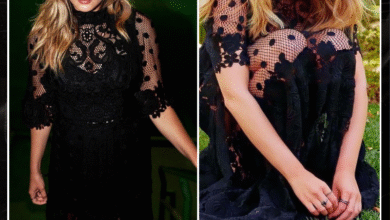Marilyn Monroe Wanted to Be a Mother—But Why Was This Dream Shattered Before It Could Begin?
OPINION: This article may contain commentary which reflects the author's opinion.
Marilyn Monroe, the iconic Hollywood star whose tragic life and complex relationships have fascinated generations, remains a subject of great intrigue—not only for her cinematic achievements but also for her deeply personal desires, particularly regarding motherhood. While Monroe’s public persona as the “dumb blonde” was often at odds with her more intricate private life, it is her yearning to become a mother that remains a poignant and somewhat elusive aspect of her story.
Early Life and Background
Born Norma Jeane Mortenson on June 1, 1926, Monroe’s early life was marked by hardship. Raised in a foster system after her mother, Gladys Baker, was diagnosed with paranoid schizophrenia and institutionalized, Monroe’s sense of family was fractured from the start. These early experiences likely shaped her views on motherhood and family, though direct expressions of these feelings from Monroe herself are scarce.
Monroe’s tumultuous childhood, filled with instability, left her with a longing for the family structure she lacked. Despite the challenges she faced, there are indications that she desired to create a different life for herself, one that included the stability of being a mother.
Evidence of Pregnancies and Maternal Longing
Research indicates that Monroe experienced at least three pregnancies during her life, all of which ended in miscarriage or abortion, and none of which resulted in the birth of a child. These details, documented by various sources including a 2022 article from Women’s Health Magazine, point to Monroe’s deep yearning for motherhood. The article states, “Marilyn loved children and she was desperate to be a mother. Sadly, she never carried a baby to term.”
Although these observations reflect a clear desire to become a mother, they are based more on interpretations from biographers rather than direct statements from Monroe herself. This lack of concrete evidence about her personal expressions on the matter makes it difficult to know for certain just how much she articulated this desire.
Further insights into Monroe’s personal life come from the 2022 CNN series Reframed: Marilyn Monroe, where actress Mira Sorvino reflects, “She wanted to be a mom. I think she wanted to love a baby.” These remarks, however, are not based on any direct quotes from Monroe herself but rather an analysis of her life, reflecting how others have interpreted her struggles with motherhood.
Monroe’s Personal Writings and Interviews
Monroe’s personal writings, compiled in Fragments: Poems, Intimate Notes, Letters (2010), provide some insight into her inner world. The collection includes notes to herself, letters, and poems that, while revealing much about her mental state and emotions, do not explicitly reference her desire to have children. However, the themes of love, longing, and a search for stability that pervade her writings suggest that she may have hoped to experience the nurturing role of motherhood, despite the challenges she faced.
In an interview with Richard Meryman published in Life magazine in 1962, Monroe discussed her emotional and personal struggles but did not explicitly address her desire for motherhood. In this interview, Monroe mentioned feeling lost and misunderstood, a sentiment that resonates with the idea that motherhood, in her mind, might have been a means of finding fulfillment and purpose. These sentiments align with what we know about Monroe’s desires for emotional connection and stability—qualities often associated with maternal bonds.
Cultural Representations and Fictionalized Accounts
Monroe’s longing for motherhood has been depicted in both biographies and films, though it is often difficult to separate fact from fiction. The 2022 film Blonde, based on Joyce Carol Oates’ novel, portrays Monroe’s pregnancies and subsequent abortions, but these scenes are fictionalized and not based on direct historical fact. The film portrays Monroe’s internal struggles and emotional pain, but these are artistic interpretations rather than documented accounts of her life.
In addition, various biographies and cultural analyses have highlighted Monroe’s troubled relationship with her own mother and her multiple pregnancies, yet these portrayals often remain speculative. The gap between what is known from direct statements and what is inferred from her life experiences leaves much room for interpretation.
Conclusion: The Complexity of Monroe’s Desire for Motherhood
While the evidence suggests that Monroe had a personal desire to become a mother, there is a distinct lack of direct statements from her on the topic. Her troubled relationship with her own mother, combined with the deep emotional pain she experienced throughout her life, likely fueled her desire for maternal connection and stability. Monroe’s repeated pregnancies and her inability to carry a child to term further emphasize the complexity of her yearning for motherhood, but these remain inferred rather than explicitly stated.
This survey of Monroe’s life highlights the challenge of understanding her private thoughts on motherhood, given the scarcity of firsthand accounts on the subject. Despite this, the recurring themes of longing and emotional vulnerability in her life suggest that becoming a mother was a dream she held dear—one that remained elusive, leaving her fans and biographers to piece together the fragments of her story.



